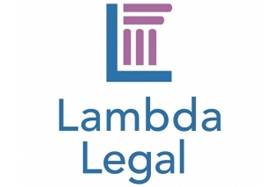
Bulletin from the Supreme Court: Arguments about Headscarves Show Tea Leaves about LGBT Rights
Blog Search
This morning, the U.S. Supreme Court heard arguments in a case that superficially has nothing to do with the LGBT community, but in fact could have significant ramifications. The EEOC and a young Muslim woman named Samantha Elauf have a very strong and sympathetic case. But even assuming that they win, the decision could be a very good one for the LGBT community – or quite a bad one, depending on what the Court says. That’s why Lambda Legal filed an amicus brief in this case.
The Background
Samantha wears a headscarf for religious reasons. She was encouraged by a friend (also Muslim) who worked at Abercrombie Kids to apply for a job there. After checking with an assistant store manager, the friend told Samantha that wearing a headscarf would be okay. Accordingly, Samantha decided to apply and wore a scarf to her job interview. Her interviewer recommended she be hired but was overridden by the District Manager, who said not to hire Samantha because of the headscarf. Samantha was not hired, not told the reason, and not asked whether wearing the scarf was mandatory for her. Her interviewer later admitted having assumed that Samantha is Muslim and wears the headscarf for religious reasons.
The EEOC sued Abercrombie & Fitch (A&F) on Samantha’s behalf and won initially. But, the appeals court reversed, saying that Samantha has no religious discrimination claim because she did not affirmatively tell A&F about her religious need to wear a headscarf and request an accommodation. That appeals court became the first and only court to rule that a job applicant suing over a failure to get a religious accommodation loses every time she doesn’t tell the employer of the conflict, even if the employer knows of the conflict and even if the employee has been led to believe there is no conflict.
What a Very Good Decision Would Say
The EEOC and Samantha can win by the Court saying simply that Title VII contains no requirement that a job applicant bringing a religious discrimination claim must have told the employer about the conflict between her beliefs and company policy and her need for an accommodation. Period. The statute places a duty on the employer to accommodate employees’ religious needs, and that duty can require the employer to inquire and consider accommodations before rejecting the employee or potential employee.
When judges fabricate limits on Title VII’s protections, it tends to hurt the LGBT community and others who need fairness at work. When judges simply apply the words of the statute, the law is able to do its job and LGBT people, among others, are protected. A couple of examples illustrate this. In 1989, the Supreme Court ruled in a sex discrimination case that employers cannot insist that employees “match[] the stereotype associated with their group.” A federal appeals court later ruled that, even though “all homosexuals, by definition, fail to conform to traditional gender norms in their sexual practices,” the gay male plaintiff there had to lose because his gender nonconformity did not manifest itself “in the workplace.” But this judge-made limitation is ridiculous; obviously Title VII forbids discrimination based on what employees do outside work, such as going to synagogue instead of church or marrying someone of a different race. Another appeals court ruled that, while of course employers can’t fire employees because the employees’ actions conflict with their supervisor’s religious beliefs, they can do so if that religious belief is “man shall not lie with man.” So just as the appeals court in this case wrongly created a new rule that disqualified Samantha from challenging A&F’s rejecting her for employment without exploring whether a religious accommodation was possible, so have courts disqualified LGBT employees for reasons that have no basis in the words of Title VII.
A Legally Sound but Less Helpful Decision Might Say
Samantha is entitled to her day in court and A&F must explain why it would have been an unreasonable burden on the store to allow her to wear the headscarf, after having explored with her options such as scarves in colors consistent with A&F’s seasonal clothing. A decision along these lines would be consistent with the Court’s ruling of a month ago that an Arkansas prison had to allow a Muslim inmate to grow a half-inch beard because the authorities could not show plausible risks to prison safety or other undue burdens from such a beard.
A Bad Decision Might Say
We submitted our friend-of-the-court brief in part out of concern about an overly broad ruling, extolling the primacy of workers’ religious rights, because many employees have cried religious discrimination when disciplined for actions harassing and even menacing to their coworkers, including LGBT workers. These have included:
- repeatedly disregarding the company's instructions to remove degrading anti-gay postings from one’s cubicle
- while working as a counselor, refusing to help patients concerning nonmarital relationships, including committed relationships of same-sex couples
- while working as a nurse, telling a gay AIDS patient and his partner that God “doesn’t like the homosexual lifestyle.”
- sending a letter to co-worker’s house telling him he must confess his sins (it was read by his wife who mistakenly concluded he was having an affair).
- leaving a message on a vendor’s machine: “ . . . I know of your background, your heritage, that you're Jewish. Jesus loves you. Jesus is the Messiah. He has come, and he is coming again. I hope you come to the saving knowledge of Jesus.”
Our brief aims to discourage the Court from going too far when reversing the Court of Appeals in this case. We all need a sensible interpretation of Title VII’s plain language, including the ban on sex discrimination that provides very significant protection to LGBT workers when properly applied. What we do not need is a disruption of the balance struck by the lower courts that allows employers to refuse religious accommodations that would harm others. In the end, this case illustrates the same distinction we emphasize nationwide in our work against overly broad religious exemptions—the distinction between reasonable accommodations that allow religious minorities to participate in public life with minimal burden on anyone else and religious claims used to justify refusals to serve, employ or rent housing to LGBT people and others deemed religiously unworthy in defiance of laws requiring an end to such harmful discrimination.




